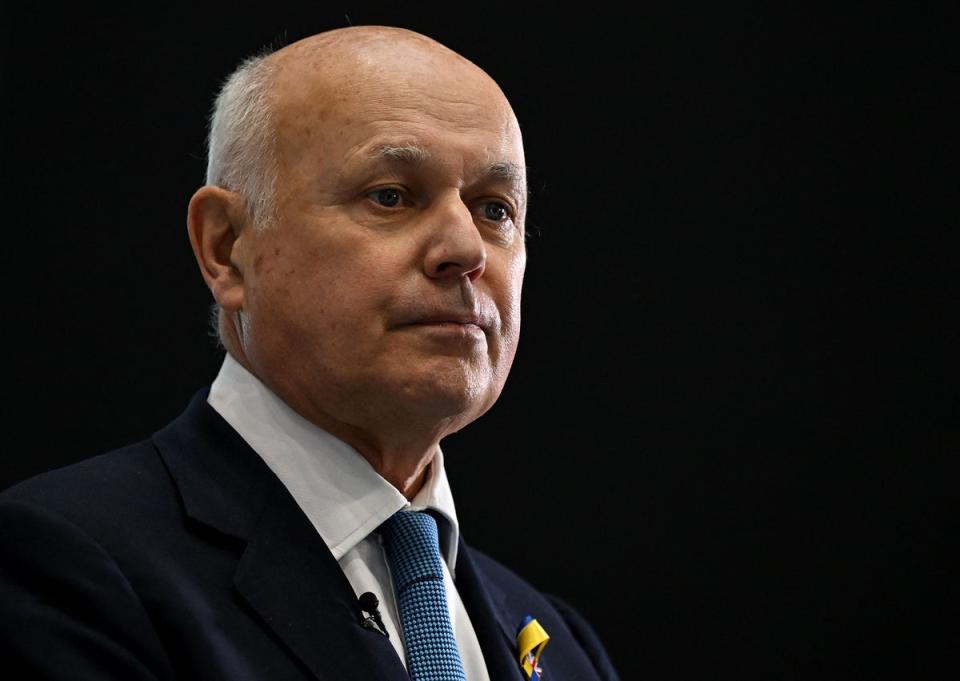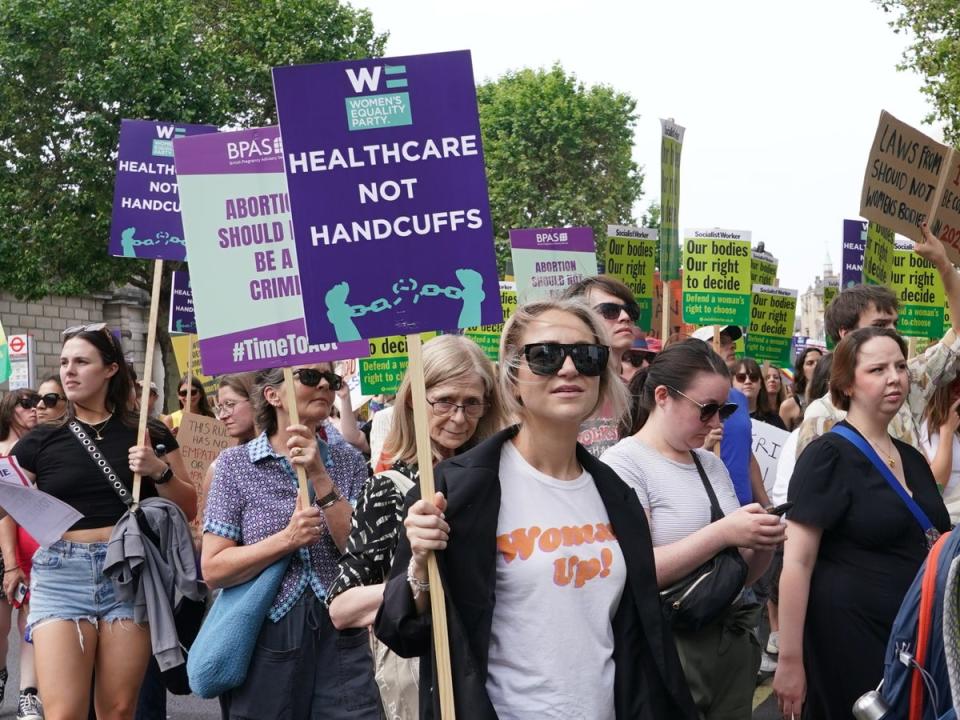More than half of anti-abortion MPs lose seats in election
Over a dozen anti-abortion MPs have lost their seats in the recent general election – sparking hopes abortion could soon be decriminalised.
Some 15 Tory MPs with a record of voting against legislation that supports abortion rights lost their seats during the snap election last week – with Sir Jacob Rees-Mogg, Maria Caulfield, Fiona Bruce, Liam Fox, and Miriam Cates among them.
Sir Jacob previously branded the legal procedure of abortion as morally wrong and a “cult of death” and has said he is even against terminations in cases of rape or incest.
A list of 25 anti-abortion MPs, compiled by leading abortion provider British Pregnancy Advisory Service (BPAS) and shared exclusively with The Independent, shows 10 MPs with a history of voting against abortion rights held onto their seats.
This includes Labour MP Mary Glindon, DUP MP Carla Lockhart, the Conservative Party’s Iain Duncan Smith and others.
BPAS chief executive, Heidi Stewart, said parliament could now be the most pro-abortion rights in its history.

She said: “The last parliament saw unprecedented attacks on our abortion rights, no doubt emboldened by the global attack on abortion.
“The anti-abortion lobby was well-resourced, well-funded, and well-connected. And through several anti-abortion MPs, they were able to pose a significant threat to the provision of abortion in the last parliament.”
Ms Stewart said she is keen to collaborate with the incoming cohort of MPs to “urgently progress the implementation of safe access zones, and decriminalise abortion for women in England and Wales.”
Safe access zones, more commonly referred to as “buffer zones”, are supposed to stop anti-abortion demonstrators standing outside or in close vicinity of abortion clinics.
Louise McCudden, of leading abortion provider, MSI Reproductive Choices, said: “With 335 new MPs elected to the House of Commons, and over 40 per cent of them women, we are cautiously optimistic about the potential for abortion law reform in this parliament.

“However, just because we have more women in parliament than ever does not mean we can be complacent. Although most people in the UK are pro-choice, the anti-abortion movement is ramping up its tactics.”
Rishi Sunak’s decision to call a snap election ruined abortion providers’ hopes abortion would soon be decriminalised.
Cross-party MPs, including Labour’s Stella Creasy and Diana Johnson, had proposed amendments to the Criminal Justice Bill that would have decriminalised abortion which were due to be voted on in parliament in early June. But the snap election meant parliament was dissolved so the vote was cancelled.
Abortions can legally be carried out in the first 24 weeks of pregnancy in England, Scotland and Wales.
But pregnancy terminations must be approved by two doctors, with the health professionals agreeing that continuing with the pregnancy would be riskier for the physical or mental health of the woman than having an abortion.
If a medical professional delivers an abortion outside of the terms of the 1967 act, they are at risk of being prosecuted. Legislation passed in 1861 means any woman who ends a pregnancy without getting legal permission from two doctors can face up to life imprisonment.
Kerry Abel, chair of the campaign group Abortion Rights, said: “The actions of the anti-choice MPs over the last decade or so have been a threat to so many women and pregnant people.”
It comes after The Independent reported on records showing the former prime minister Mr Sunak and senior members of his government voted against boosting access to abortions or have opted out of key votes on terminations.
Anneliese Dodds, minister for women and equalities, warned that Mr Sunak, the former chancellor, Jeremy Hunt, ex-foreign secretary, James Cleverly, and former home secretary, Suella Braverman have abstained or voted against all English abortion legislation since 2015.
This includes moves to roll out “buffer zones” around abortion clinics to protect women seeking terminations from being harassed by protesters, at-home early medical abortions and decriminalising terminations.
The Independent has contacted spokespeople for Labour and the Conservative Party, as well as Fiona Bruce, Liam Fox, Miriam Cates, Iain Duncan-Smith, Caroline Answell and Chris Green for comment.


